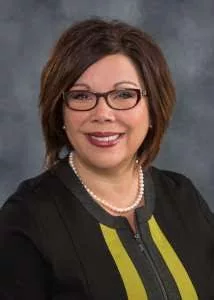
Many of my columns focus on different aspects of healthy living, but September is Healthy Aging Month, so it’s a good time to think about what we can do to support our health as we get older. As with any phase of life, it’s important to focus on eating well, exercising, and staying away from things that we know aren’t good for our health, like smoking and drinking too much alcohol. The same goes for our emotional health. We can feel better mentally if we manage our stress well and stay connected to those we love.
As we get older, we need to be especially aware of getting enough calcium and fiber each day. Maintaining good fiber intake through diet helps support bowel health. Women should aim for 21 grams of fiber per day, and men should have 30 grams per day. Fruits and vegetables, whole grains, and legumes like beans are great sources of fiber. Calcium keeps our teeth healthy and bones strong, and women 51 years of age and older should get 1,200 milligrams per day, while men 51-70 should get 1,000 milligrams per day. Men who are 71 and older should get 1,200 milligrams per day. Good sources of calcium include dairy foods such as yogurt, milk, and cheese, and plant-based sources such as tofu and kale. Many foods, such as cereals, are also fortified with calcium.
In general, older adults should also focus on eating a diet with plenty of nutrient-dense foods like fruits and vegetables, whole grains, low-fat dairy products, eggs, and lean proteins like fish and chicken. Things to avoid include highly processed foods and foods that are high in sugar or salt. It’s also important to stay hydrated, and water is always the best choice, since many juices and sodas are high in sugar.
Keeping active is important too, for both physical and mental health. Walking, swimming, and pickleball are all good options, but remember that activities like cleaning your house and gardening count as exercise, too. Aim for 30 minutes of exercise at least five days per week.
It’s essential for older adults to see their primary care provider regularly and discuss any chronic conditions they may be living with, like a heart condition or diabetes. Vision issues, hearing challenges, and dementia are all things that older adults must be concerned with and talk to their doctors about, and keeping up with cancer screenings is a top priority as well. This includes mammograms for women, prostate exams for men, and colonoscopies for men and women. Going over your medications and their side effects with your doctor helps avoid problems associated with medications that may be incompatible or ones that may produce negative side effects. Your doctor can always vary your medication schedule to avoid these problems.
Safety in the home is another critical thing to build awareness around, since falls can happen easily. To prevent falls, keep your home well-lit, remove potential hazards like throw rugs, clutter, and cords that could be tripped over, and make your bathroom safer by installing grab bars in the shower and nonslip mats. Hallways and staircases should be decluttered, and securely placed staircase railings are a must. Making sure you wear shoes that fit well is also important in preventing mishaps.
One’s quality of life should remain as high as possible during their older years. This phase of life can be a time of connection, discovery, and joy. Doing all we can to take the best care of ourselves — hopefully like we have always done — means we can continue enjoying ourselves, our loved ones, and new experiences.
This November 6th, Blue Ridge Regional Hospital will proudly celebrate 70 years of serving the community — a milestone that reflects our long-standing commitment to rural healthcare. While rural hospitals across the country face growing financial and policy challenges, we remain focused on advocating for vital programs like Medicaid and enhanced premium tax credits to help preserve access to care. As part of Mission Health and HCA Healthcare, we understand the essential role our hospital plays in the region and will continue working to support sustainable healthcare for the communities we serve.
We are proud to be your hometown hospital and everyone at Blue Ridge Regional Hospital considers it a privilege to care for our community.
Tonia W. Hale, DNP, MAOM, BSN, RN, is Chief Executive Officer and Chief Nursing Officer of Blue Ridge Regional Hospital in Spruce Pine. Hale is a proven leader with more than 32 years of progressive healthcare experience. A native of East Tennessee, she holds an associate’s degree in nursing from Walters State Community College, a baccalaureate degree in nursing from the University of Tennessee, a master’s degree in organizational management from Tusculum University, and a doctor of nursing practice degree in executive leadership from East Tennessee State University. Ms. Hale is currently a resident of Burnsville.




